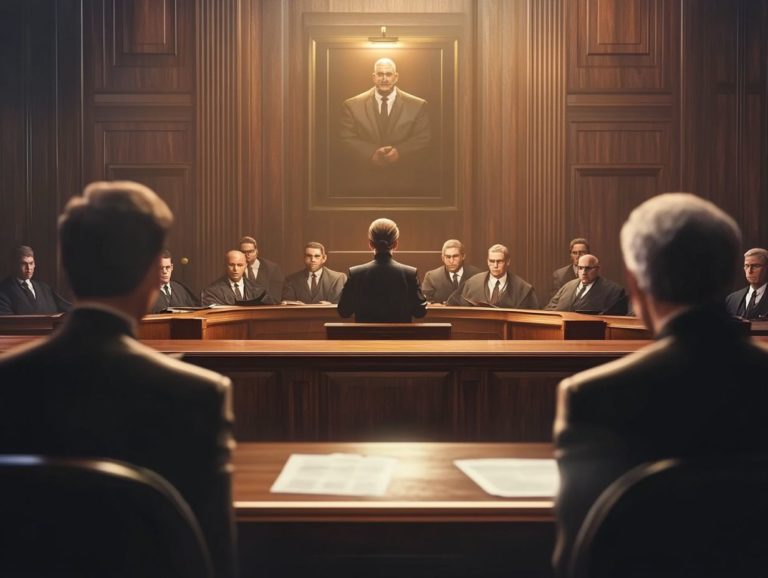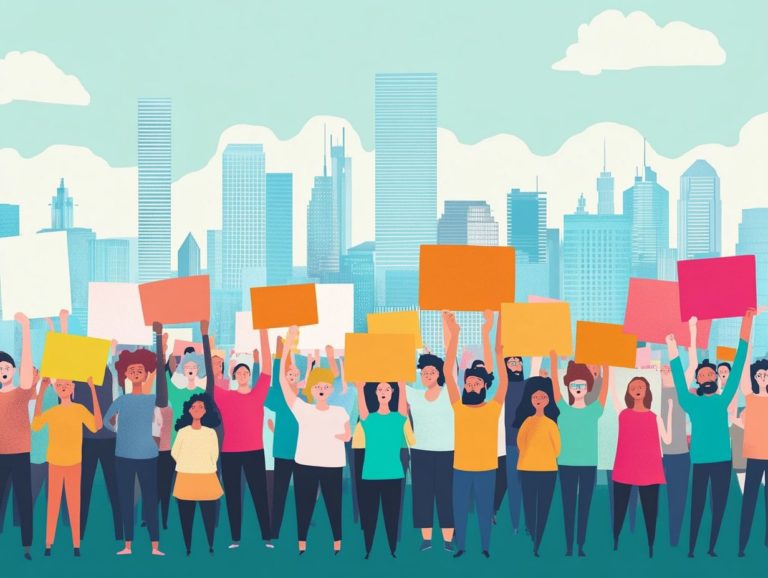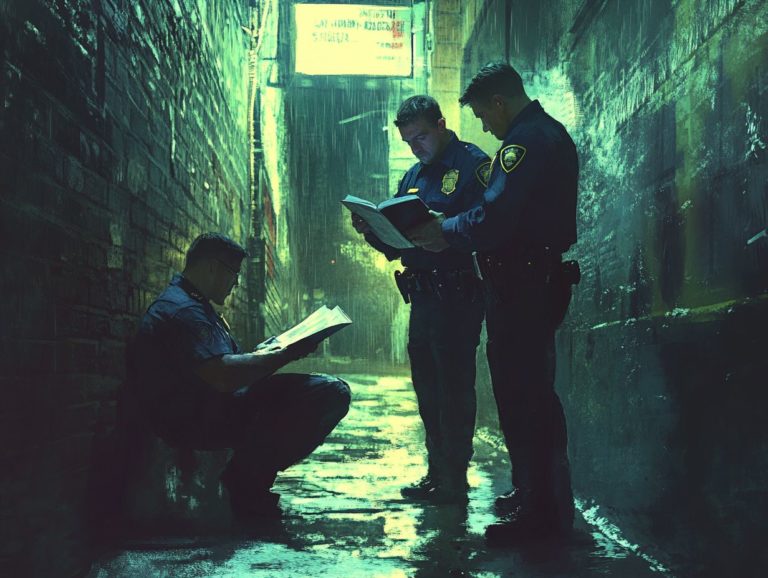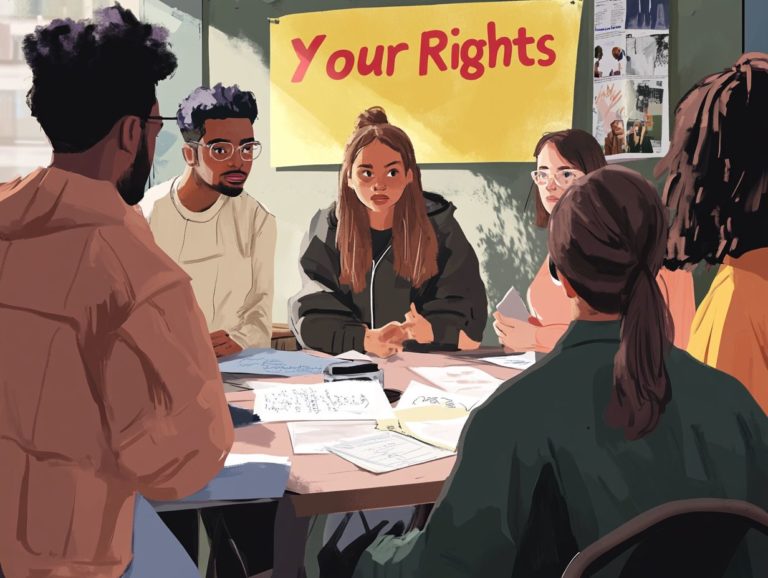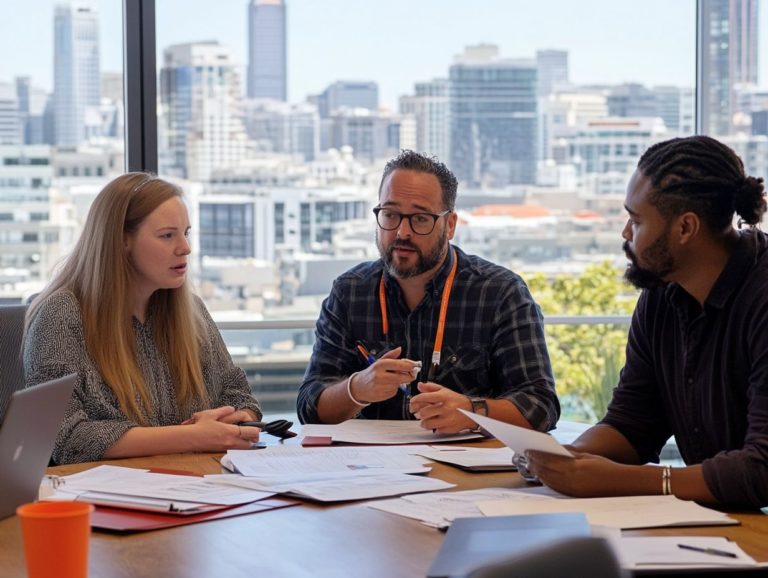The Role of Public Defenders in Your Rights
Navigating the criminal justice system can feel overwhelming, especially when you’re facing criminal charges. Public defenders play a vital role in ensuring everyone, regardless of financial situation, has access to legal representation.
This article explores the essential functions of public defenders, outlines your rights during legal proceedings, and highlights when it s crucial to seek their assistance.
You ll also learn how to effectively work with them, the benefits they provide, and the challenges they face. Understanding these aspects can empower you to make informed decisions during a challenging time.
Contents
- Key Takeaways:
- The Importance of Public Defenders
- Your Rights When Facing Criminal Charges
- When to Seek the Help of a Public Defender
- The Process of Working with a Public Defender
- Benefits of Having a Public Defender
- Challenges and Limitations of Public Defenders
- Frequently Asked Questions
- What is the role of public defenders in protecting your rights?
- How do public defenders protect my rights during the legal process?
- Are public defenders required to represent me if I cannot afford a private attorney?
- What are some examples of rights that public defenders protect?
- Can I choose my public defender?
- What should I expect from my public defender during my case?
Key Takeaways:
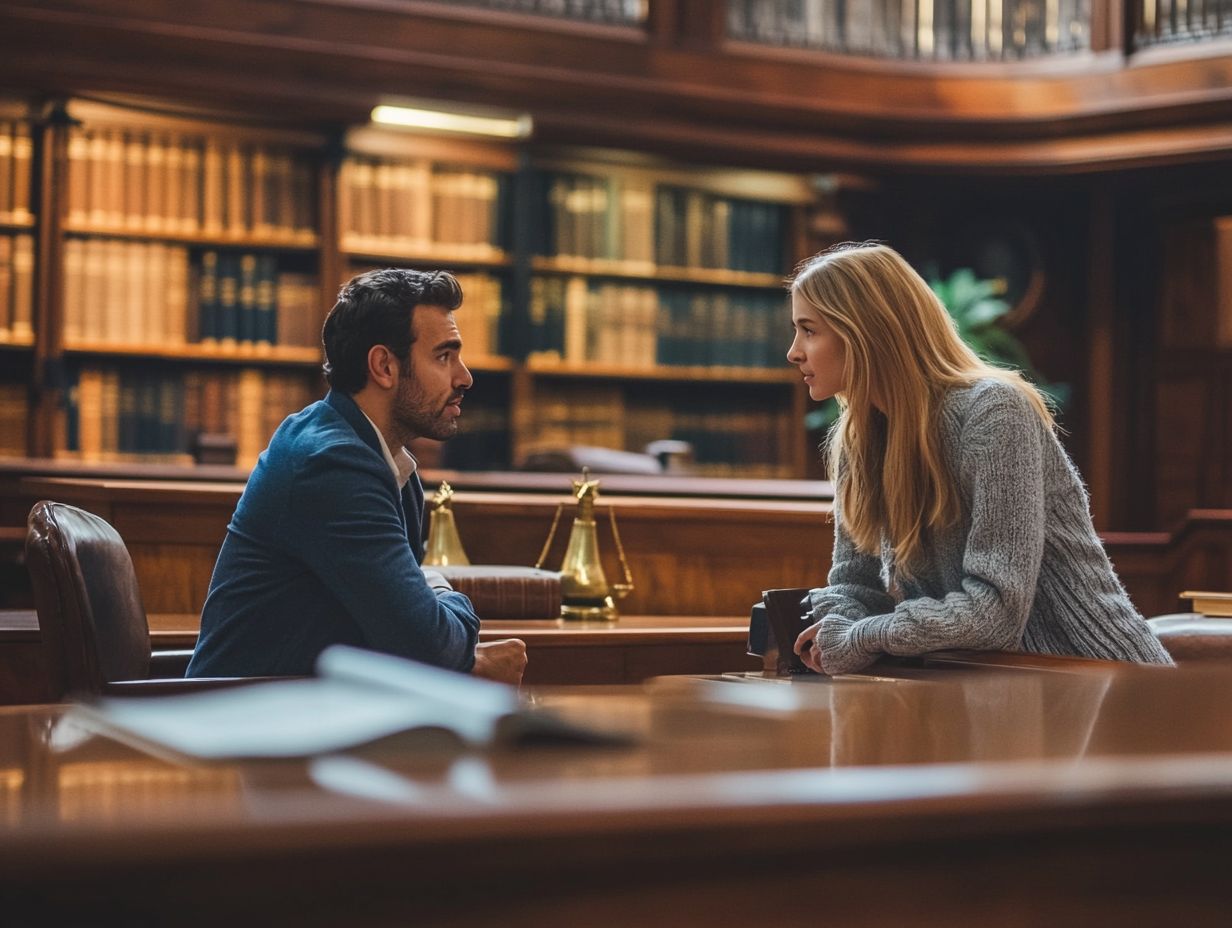
- Public defenders are crucial in protecting the rights of individuals facing criminal charges.
- Understanding your rights is vital for ensuring a fair legal process.
- Eligibility for a public defender depends on financial need and the severity of the charges.
The Importance of Public Defenders
Public defenders hold a pivotal position in the criminal justice system, ensuring individuals without resources receive the legal help they need to navigate the law and uphold their constitutional rights.
They also enhance public safety and foster trust within communities. By providing legal help for those who can’t afford it, public defenders protect the rights of the accused and ensure fair treatment under the law.
Understanding the Role of Public Defenders
Public defenders advocate for individuals facing criminal charges without the means to hire private attorneys. They ensure your rights are safeguarded throughout the legal process.
Their role goes beyond basic trial representation; it includes providing vital legal advice at various stages of the proceedings. They manage cases through pre-trial, trial, and appeals, fostering a comprehensive relationship with clients.
Their responsibilities encompass gathering evidence, negotiating plea deals, and advocating for the best outcomes while navigating the complexities of criminal law.
Your Rights When Facing Criminal Charges
When facing criminal charges, grasp your constitutional rights under the Sixth Amendment, which assures you the right to legal counsel and a fair trial. This foundation is crucial for ensuring a just legal system.
Being aware of these rights allows you to navigate the criminal justice system with confidence and clarity.
Overview of Your Rights
When facing criminal charges, you should know your legal rights: the right to legal counsel, a fair trial, and informed consent throughout the legal process. This awareness equips you to understand your options and the implications of your decisions.
The right to legal counsel means skilled professionals advocate for you, challenging evidence and managing procedural intricacies. The right to a fair trial ensures judges and juries are impartial, allowing you to present your case without bias.
Informed consent is crucial, enabling you to make well-informed decisions about plea deals, trial strategies, or potential outcomes. These choices directly impact your case and future, so understanding them is paramount.
When to Seek the Help of a Public Defender
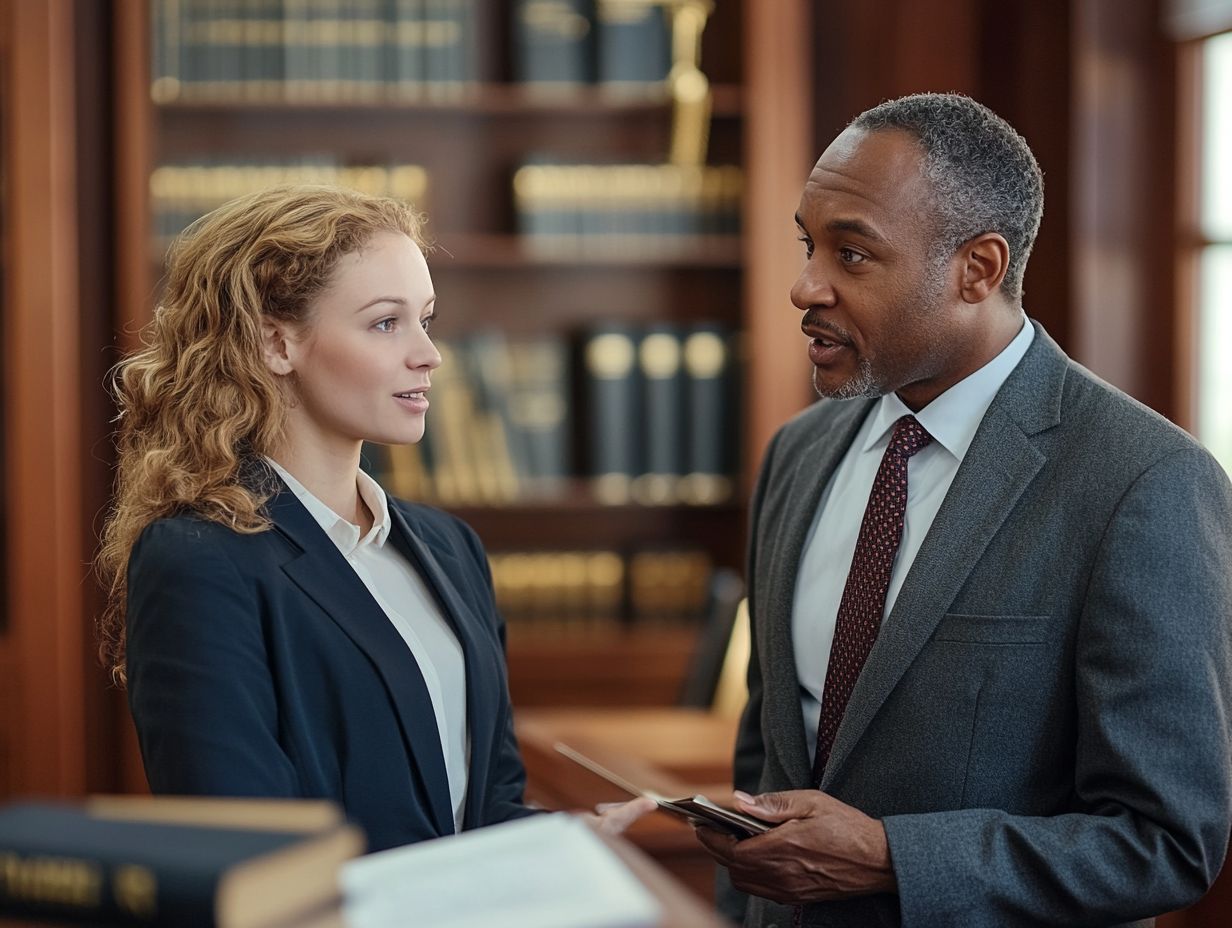
Recognizing when to seek support from a public defender is vital for anyone facing criminal charges. This is especially true for those dealing with pretrial detention and bail issues.
If you cannot afford a lawyer and are facing serious allegations, reach out to your local public defender’s office as soon as possible. They provide essential legal services tailored to your situation.
Determining Eligibility for a Public Defender
Eligibility for a public defender usually depends on your financial situation. You need to show that you cannot afford private legal counsel while facing criminal charges.
This process involves evaluating your income against certain thresholds, which vary by location. Factors like family size, debts, and living expenses are all considered.
The nature of the charges may also influence the eligibility criteria. Serious offenses might result in a more lenient threshold to ensure you get adequate representation.
Indigent defense is crucial for ensuring fairness in the judicial system. Access to legal services is vital, especially for underprivileged individuals seeking justice.
The Process of Working with a Public Defender
Working with a public defender involves several key steps. This starts with an initial consultation and continues through your unique criminal proceedings.
Public defenders are your allies in this process. They offer expert advice and representation, guiding you through the complexities of the legal system.
Steps Involved in the Legal Process
Your legal journey with a public defender includes stages like initial consultation, case investigation, plea bargaining, and representation during trial or hearings.
The public defender plays a critical role in ensuring fair representation. During the initial consultation, they learn about your case and the charges against you, which is essential for understanding the role of your defense attorney.
Next is the investigation stage. The public defender gathers evidence, reviews reports, interviews witnesses, and consults experts to build a strong defense.
When it’s time for plea bargaining, they negotiate with the prosecution to secure favorable terms. This could mean reducing charges or getting lighter penalties.
If your case goes to trial, the public defender fiercely advocates for you. They present evidence and arguments while navigating the judicial system.
Benefits of Having a Public Defender
Getting help from a public defender has many advantages. You receive free legal services and expert representation in criminal matters.
Public defenders ensure that everyone receives fair representation, especially for those facing financial challenges in securing legal help.
Advantages of Working with a Public Defender
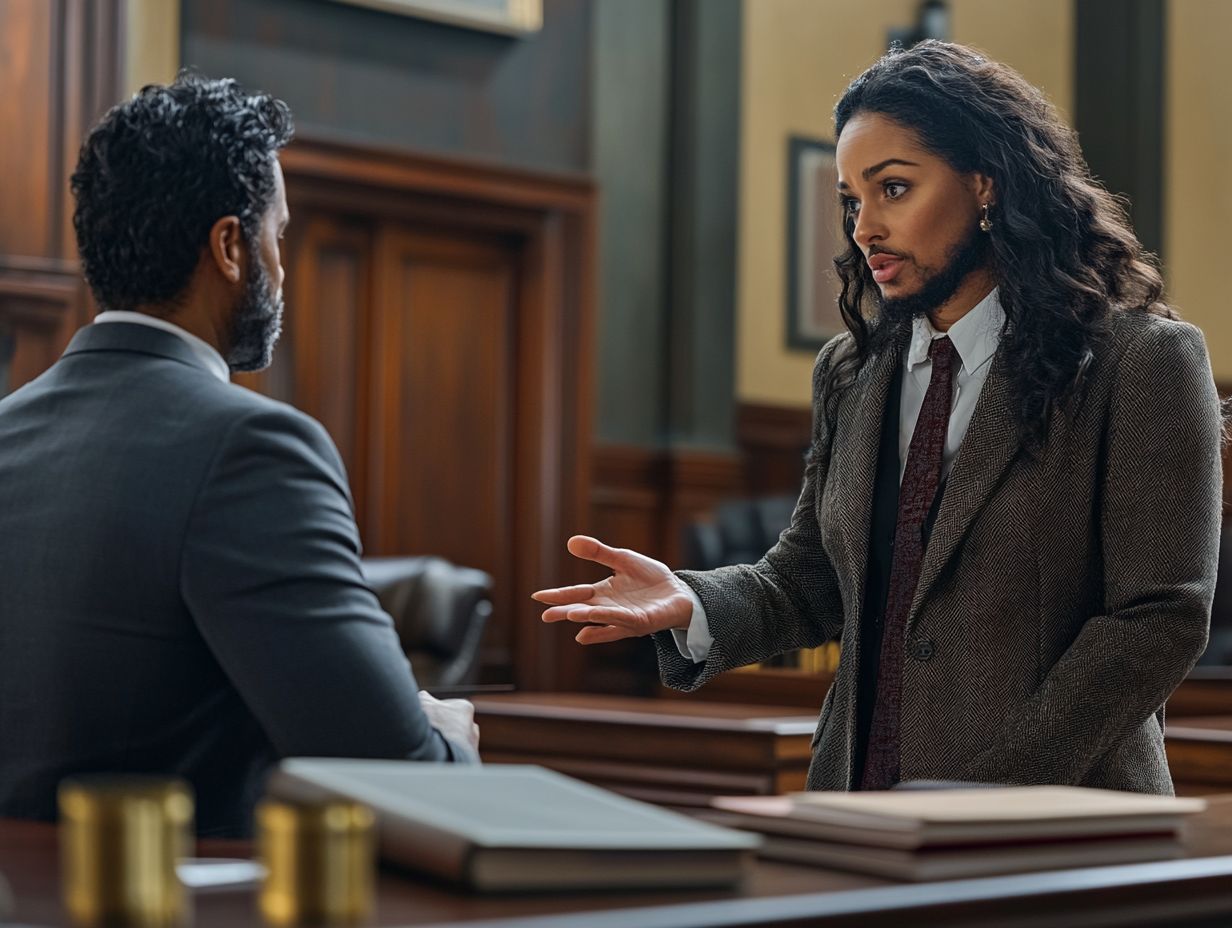
Working with a public defender has many advantages. They provide quality legal representation and have in-depth knowledge of community safety issues. Their commitment to safeguarding the rights of the accused is unwavering throughout the criminal defense process.
Public defenders are familiar with the local legal system, making it easier for them to represent you effectively. Their understanding of procedural nuances enhances their ability to advocate on your behalf.
With extensive experience handling similar cases, they can create strategic defenses tailored to your unique circumstances. This ultimately increases the likelihood of a favorable outcome.
By addressing cases fairly and thoroughly, public defenders are crucial players in promoting community safety. They serve not only as defenders of the accused but also as vital contributors to a just legal system that balances individual rights with societal needs.
Challenges and Limitations of Public Defenders
Despite the essential role public defenders play in ensuring access to justice, they often face significant challenges that impact their effectiveness. High caseloads and inadequate resources are among the hurdles they encounter.
These obstacles can lead to unjust practices within the legal system, hindering their ability to meet legal obligations and provide the thorough defense every client deserves.
Possible Obstacles and How to Overcome Them
Public defenders encounter challenges such as overwhelming caseloads, insufficient funding, and systemic issues within the legal framework. These factors not only compromise the quality of your defense but also exacerbate existing inequalities in the justice system.
For example, excessive workloads can lead to rushed case evaluations, negatively impacting your case outcomes. To address these issues, engage with community support initiatives that offer legal resources and education, enabling you to better understand your rights.
You can advocate for reforming funding structures to ensure public defenders receive fair compensation, alleviating some of the pressure they face. You can also push for policy changes, such as implementing caseload limits, to enhance the effectiveness of representation. This ensures you receive the attention your case truly deserves.
Frequently Asked Questions
What is the role of public defenders in protecting your rights?
Public defenders provide legal representation to individuals who cannot afford to hire a private attorney. Their role is to ensure that your rights are protected and that you receive a fair trial.
How do public defenders protect my rights during the legal process?
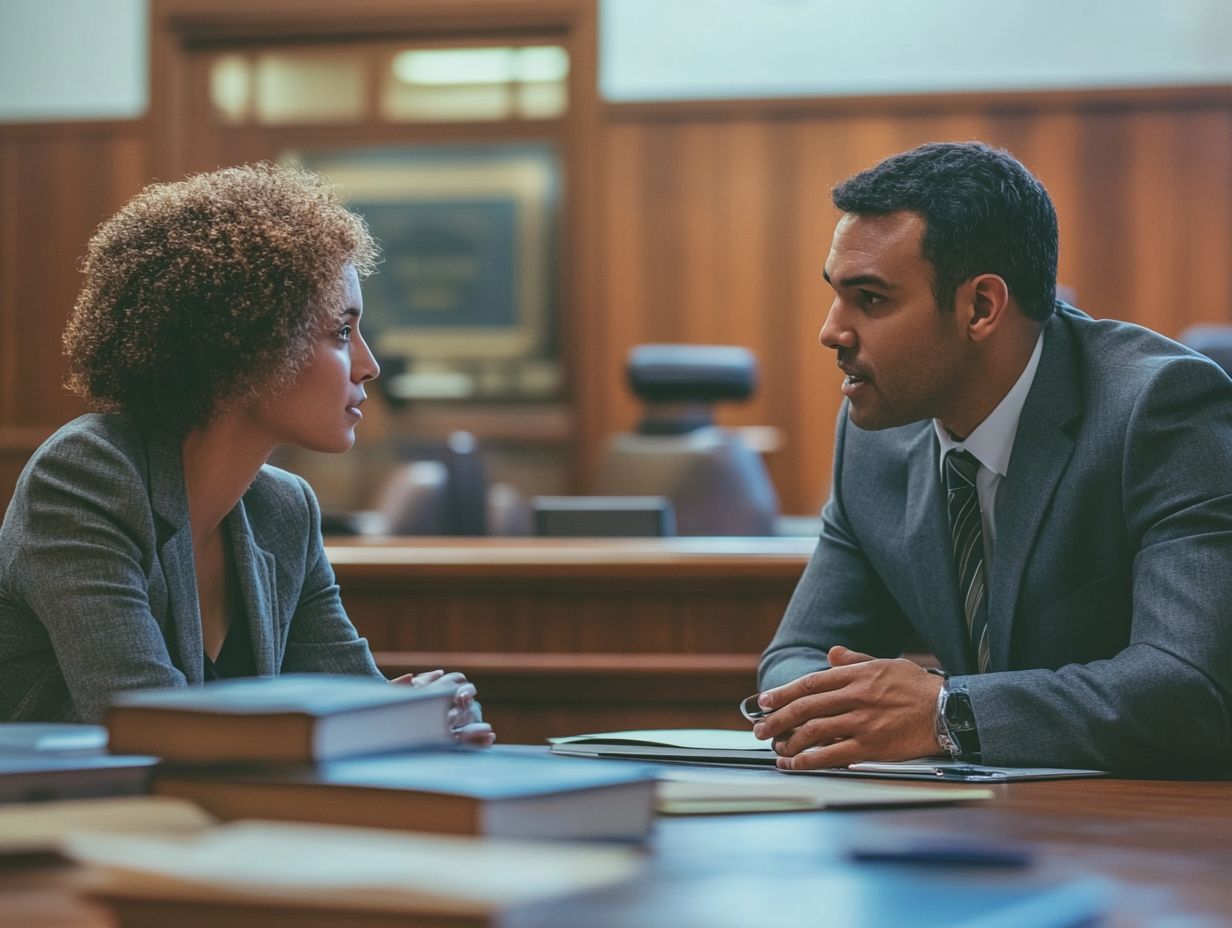
Public defenders are trained legal professionals with a thorough understanding of the law. They use their knowledge and expertise to ensure your rights are upheld throughout the legal process, from the initial arrest to the final verdict.
Are public defenders required to represent me if I cannot afford a private attorney?
Yes, public defenders are appointed by the court to provide legal representation to individuals who cannot afford a private attorney. It is their duty to ensure everyone has access to legal representation, regardless of financial situation.
What are some examples of rights that public defenders protect?
Public defenders protect a wide range of rights, including the right to a fair trial, the right to remain silent, the right to legal counsel, and the right to due process (the legal requirement that the state must respect all legal rights owed to a person). They also ensure that your constitutional rights are not violated during the legal process.
Can I choose my public defender?
In most cases, you cannot choose your public defender. They are assigned to you by the court based on your financial situation and the availability of public defenders in your area. However, you may be able to request a different public defender if there is a conflict of interest.
If you need assistance, consider reaching out to public defender offices or community resources to learn more about your rights and options.
What should I expect from my public defender during my case?
Your public defender is your lawyer. They will give you legal advice and represent you in court.
They will negotiate with the prosecution and work to build a strong defense. Your public defender fights for your rights throughout the legal process.
Remember, you have the right to a fair defense. Take your case seriously and communicate openly with your public defender!

